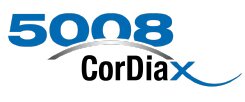Home / FlashMed
FlashMed
| Titolo | The Hannover Dialysis Outcome study: comparison of standard versus intensified extended dialysis for treatment of patients with acute kidney injury in the intensive care unit |
| Autore | Robert Faulhaber-Walter∗,1, Carsten Hafer∗,1, Nicole Jahr1, Jutta Vahlbruch1, Ludwig Hoy2, Hermann Haller1, Danilo Fliser3 and Jan T. Kielstein1 - 1Department of Internal Medicine, 2Department of Medical Biometry, Hannover Medical School, Hannover and 3Department of Internal Medicine, Saarland University Centre, Homburg/Saar, Germany |
| Referenza | Nephrol Dial Transplant 2009; doi 10.1093-ndt-gfp035 |
| Contenuto | Background. Increasing the dose of renal replacement therapy has been shown to improve survival in critically ill patients with acute kidney injury (AKI) in several smaller European trials. However, a very recent large multicentre trial in theUSAcould not detect an effect of dose of renal replacement therapy on mortality. Based on those studies, it is not known whether a further increase in dialysis dose above and beyond the currently employed doses would improve survival in patients with AKI.We therefore aimed to assess mortality and renal recovery of patients with AKI receiving either standard (SED) or intensified extended dialysis (IED) therapy in the intensive care unit. Methods. A prospective randomized parallel group study was conducted in seven intensive care units of a tertiary university hospital. Pre-existing chronic kidney disease was an exclusion criterion. A total of 156 patients (570 screened) with AKI requiring renal replacement therapy were randomly assigned to receive standard dialysis [dosed to maintain plasma urea levels between 120 and 150 mg/dL (20-25 mmol/L)] or intensified dialysis [dosed to maintain plasma urea levels <90 mg/dL (<15 mmol/L)]. Outcome measures were survival at Day 14 (primary) and survival and renal recovery at Day 28 (secondary) after initiation of renal replacement therapy. Results. Treatment intensity differed significantly (P < 0.01 for plasma urea and administered dose). No differences between intensified and standard treatment were seen for survival by Day 14 (70.4% versus 70.7%) or Day 28 (55.6% versus 61.3%), or for renal recovery amongst the survivors by Day 28 (60.0% versus 63.0%). Conclusions. Although this study cannot deliver a definitive answer, it suggests that increasing the dose of extended dialysis above the currently recommended dose might neither reduce mortality nor improve renal recovery in critically ill patients, mainly septic patients, with AKI. |
| Data | 05.03.2009 |
| Lista completa |
|







